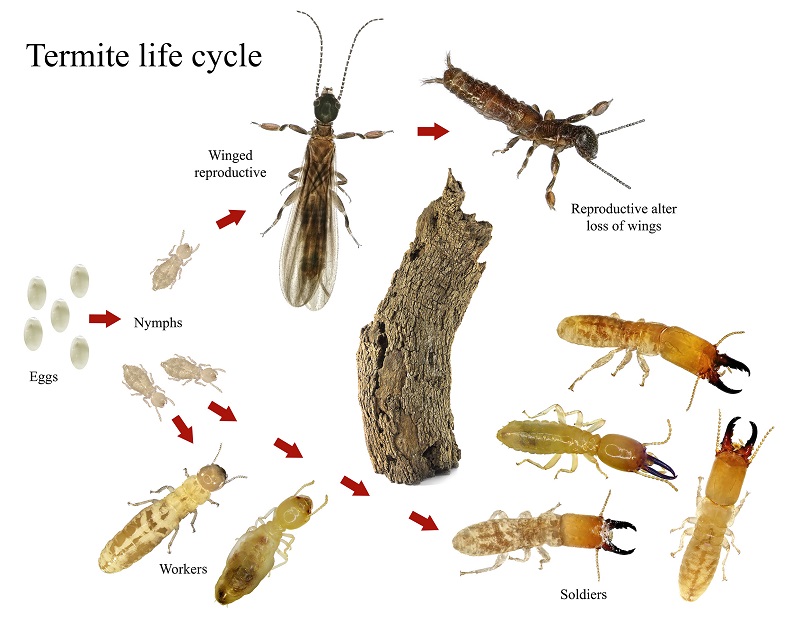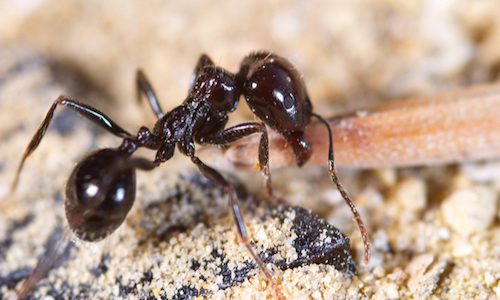Environmental Effect of Parasite Control: Harmonizing Effectiveness With Sustainability
The ecological impact of insect control is an important concern that calls for a fragile equilibrium between accomplishing effectiveness in managing insects and making sure sustainability of our communities. From the usage of unsafe chemicals that seep into our soil and water to the unintentional effects on non-target varieties, the effects of standard insect control methods are significant.
Dangerous Chemicals in Parasite Control
The application of harmful chemicals in pest control poses substantial ecological and health threats that call for cautious consideration and mitigation techniques. Chemicals, pesticides, and herbicides are typically used to eliminate insects, but their extensive application can bring about unintentional effects. These chemicals can pollute soil, water resources, and the air, influencing not just the targeted insects however additionally useful insects, wildlife, and humans.

To address these risks, incorporated pest monitoring (IPM) techniques are being promoted as a much more sustainable choice. IPM involves a mix of techniques such as organic control, environment manipulation, and the targeted use chemicals as a last resource (ant control walkerton nc). By adopting an alternative approach to pest control, we can minimize the ecological and health influences connected with harmful chemicals while properly taking care of pest populations
Influence On Non-Target Types
Thinking about the unintentional repercussions of pest control methods, the effect on non-target types is an essential element that calls for thorough evaluation. While parasite control measures aim to target specific insects, various other organisms in the ecosystem may be unintentionally impacted. Non-target varieties, consisting of advantageous pests, birds, mammals, and even plants, can suffer indirect or direct injury from chemical applications or organic control approaches.
Insecticides made to battle a particular bug bug might damage pollinators like or natural killers such as ladybugs. Organic control representatives, if not species-specific, can posture risks to unintentional targets, interfering with the eco-friendly balance.
To alleviate the effect on non-target types, integrated pest monitoring (IPM) techniques that emphasize an alternative technique to pest control are suggested. These techniques prioritize using ecologically friendly practices, reducing harm to valuable microorganisms while properly taking care of pest populaces. Performing complete danger assessments and keeping track of the outcomes of pest control initiatives are crucial action in guarding non-target species and advertising general community health.
Dirt and Water Contamination
Unintended environmental effects of parasite control techniques expand past influencing non-target species, with considerable ramifications for soil and water contamination - ant control. Pesticides, herbicides, and chemical fertilizers utilized in parasite control can seep into the soil and pollute groundwater, presenting a risk to both earthbound and aquatic communities.
Water contamination is one more critical issue related to pest control practices. Runoff from agricultural fields treated with pesticides can carry these chemicals right into nearby water bodies, impacting water organisms and water top quality. Pollutants in water resources can have significant repercussions, affecting not just water life yet additionally human health with the usage of polluted water or water organisms. To alleviate dirt and water contamination from pest control activities, integrated insect management strategies that prioritize sustainability and decrease chemical inputs are important.
Air Pollution From Chemical Usage
Exposure to air-borne chemicals throughout agricultural applications poses a substantial problem for air contamination control measures. They can volatilize into the air and kind volatile organic substances (VOCs) and other air-borne pollutants when chemicals are sprayed onto crops - ant control. These chemicals can add to the formation of ground-level ozone, a significant component of smoke that can have damaging results on human health and wellness, crop efficiency, and overall air top quality. Additionally, pesticide drift, where chemicals are lugged by the wind to unintentional locations, can cause the contamination of neighboring ecosystems and water bodies.

Techniques for Sustainable Bug Control
In the realm of agricultural techniques, implementing lasting pest control techniques is vital for preserving ecological balance and safeguarding plant yields. Sustainable parasite control emphasizes using eco-friendly approaches to take care of bug populaces properly while minimizing damage to non-target microorganisms and ecological communities. Integrated Insect Management (IPM) is a commonly adopted method that combines biological, cultural, physical, and chemical control methods to achieve long-lasting insect administration remedies.
Crop turning and diversification are likewise efficient strategies to disrupt pest life cycles and produce much less beneficial conditions for bugs to flourish. Ultimately, by incorporating these lasting parasite control techniques, farmers can achieve an equilibrium in between pest management effectiveness and environmental stewardship.
Verdict
To conclude, the ecological effect of bug control techniques have to be thoroughly taken into consideration to stabilize efficiency with sustainability. Damaging chemicals used in parasite control can bring about soil and water contamination, air pollution, and damage non-target species - termite control services. It is vital to apply lasting insect control methods to decrease these unfavorable results on the atmosphere and advertise a much healthier environment for future generations
By embracing a holistic approach to pest control, we can decrease the environmental and health and wellness influences linked with hazardous chemicals while efficiently handling pest populaces.

To mitigate the air contamination caused by pesticide use, it is important to adopt incorporated pest monitoring methods that focus on the usage of non-chemical pest control techniques, such as plant rotation, natural killers, and resistant crop ranges. Sustainable parasite control stresses the usage of environmentally friendly methods to manage parasite populations successfully while lessening harm to non-target organisms and visit the website ecosystems. Integrated Pest Administration (IPM) is a commonly adopted technique that combines biological, cultural, physical, and chemical control techniques to achieve long-term parasite management services.